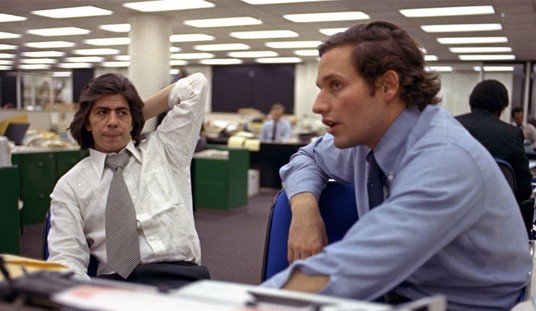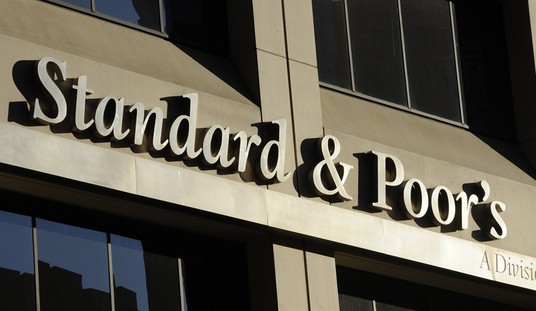At this stage of the pandemic, with so many Americans crestfallen that vaccination hasn’t fulfilled the hope of freeing us from all restrictions, is there anything more dispiriting than hearing the words “I can’t guarantee” and “indefinitely” from this guy?
Actually, I’m paraphrasing what he said to Anderson Cooper last night. Yes, he admitted, it’s possible that we’ll need a COVID booster regularly as immunity from the previous shot wanes, the same way we do with the flu. But it’s also possible that we won’t. Skip to 3:50 below and watch him describe what the studies show about a third shot. Apparently the increase in antibodies is so massive that regular boosters might not be needed afterward, at least not at the sort of six-month intervals we’re looking at now.
Of course, once we inevitably encounter the Zeta, Theta, and Omega variants, the calculus could change. Stay tuned.
How long might a booster shot give the recipients further immunity against a Covid-19 infection?
"We are humble, we are modest about it," says Dr. Anthony Fauci. "We don't know the answer to that, and the only way you do that is you continue to do the clinical studies." pic.twitter.com/WEfnvsm36n
— Anderson Cooper 360° (@AC360) August 13, 2021
Quote: “I don’t know for certain, but that could mean that you induce a response that’s high enough — and durable enough — that you may not have to worry about what people are concerned about, needing a so-called boost every year or so.” Okay, but what if we do need a booster every six months? How’s that going to work for things like employer vaccine mandates?
He’s not sure and hopeful that maybe we won’t need more than 3, but also maybe we will, and maybe we’ll need many more forever! The science may very well say that could be helpful to immunity, but when it comes to public policy, how does that work?
— Mary Katharine Ham (@mkhammer) August 13, 2021
As we’ve seen this week in several stories, public commentators/leaders have about a 3-month compassion limit on segment of society not vaccinated after it’s available universally. Would same apply when each booster is approved? 3-month countdown from persuasion to punishment?
— Mary Katharine Ham (@mkhammer) August 13, 2021
My guess is that employers will quickly get exasperated with having to check up on employees every six months to make sure they’ve had their shots and will require only the initial two doses as a condition of employment. But they could always incentivize staff to get boosted in other ways. For example, they could put you on the honor system to get your shots as recommended. If you do so and catch COVID anyway (or if you’ve had COVID before and a doctor says you didn’t need the shot), your sick leave is paid. If you refuse and catch COVID, it’s unpaid.
Of course, employees will want to know why that rule applies to the COVID booster but not, say, the annual flu shot.
In the first few minutes of the Fauci interview, Anderson Cooper asks why the feds don’t just authorize boosters for everyone who wants one. I’ve been wondering that myself, as has Nate Silver:
Is there a trade off with vaccines for other counties? I don't know, but as a matter of theory, basic economics would suggest that increased demand will increase supply. And as a matter of practice, elected officials are going to look to protect their own citizens first.
— Nate Silver (@NateSilver538) August 13, 2021
Fauci says we need an orderly way of providing boosters, just as we administered the first doses in January in an orderly way. The immunocompromised are most in need so they come first. Fair enough, but why aren’t plans already being made to roll out boosters to nursing-home residents and senior citizens? Older people in my own family are already more than six months removed from their first shot and potentially vulnerable as Delta rampages across the country. It’s another disaster by the CDC and FDA, writes Jim Geraghty:
How safe are those vaccinated with Pfizer going to be in September? By Halloween? By Thanksgiving or Christmas? Will there be a point where the vaccine won’t keep you out of the hospital? Even if Delta Plus is just a slightly different version of the “regular” Delta variant, will our vaccinations be sufficiently protective against the Lambda variant or some other future variant?…
A lot of the people most concerned about catching COVID-19 can see that the CDC and FDA announce decisions several weeks after other countries’ health ministries and departments do. We’re just approving a third dose for organ-transplant patients now, while the Israelis administered third doses to 754,000 senior citizens and immunocompromised people so far this month, and now the Israelis are giving a third shot to those 50 years old and up, health workers, and prisoners and prison staff. The Israeli public-health bureaucracy must be the only one in the world capable of sprinting.
I would not argue that the U.S. should outsource its health-policy decisions to the Israeli Health Ministry. But I do think that when the Israeli medical community says, “Hey, we’ve spotted a serious problem,” like it did five weeks ago, we should react as if they’re probably right. I don’t think the Israelis are vaccination addicts who are just freebasing uncut Pfizer these days.
Given the abundant supply of vaccines here in the U.S., you would think the CDC would err on the side of early boosters for seniors purely as a CYA matter. The more they dawdle, the more fire they’ll take if/when Delta begins burning through vaccinated nursing-home residents again and they’re asked why those residents weren’t boosted sooner. Unless there’s a safety reason to delay the shots for older people, they should announce a timetable for when they’ll be eligible. Because, look: We all know they’re going to do it eventually. That’s been a hallmark of the public-health bureaucracy throughout the pandemic, moving slowly towards taking an action which the wider public has already come to view as inevitable. It was clear as cases fell dramatically this past spring that the masking rules for vaccinated people would be relaxed, but the CDC didn’t get around to it until mid-May. It was clear once Delta descended on Israel and the UK that we’d be back to taking precautions again soon, but again the CDC waited until the end of July to adjust. Now it’s clear that boosters for at-risk seniors are coming. Just not yet.
Why not yet? What’s the argument for waiting rather than just making sure it’s done in an “orderly” way?
By the way, thanks to the miracle of modern science, some people may eventually end up with a booster that’s specifically tailored to thwart the Delta variant, not the original virus. BioNTech, which developed the Pfizer vaccine, is already on the case:
Because the company uses mRNA technology—a type of vaccine that uses the genetic code for a key protein in the virus to teach the body to make that protein and learn how to fight it off—editing the vaccine involves a relatively simple change in the code. “The vaccine we are using now has the original spike protein, and the only thing we basically need to do is cut out this part and take the spike protein of the delta variant,” says Özlem Türeci, co-founder and chief medical officer of BioNTech…
Making each new version of the vaccine can take only weeks. “If you have the sequence, then we are able in principle to make the vaccine within less than four weeks,” says cofounder and CEO Uğur Şahin, who led the record-breaking 11-month path of the first COVID vaccine from the lab to approval. (Previously, the fastest vaccine ever developed took four years.) “With all the testing which is required, it takes us less than 100 days to really ship the vaccine. It will become shorter with time, because everything is going to be improved and accelerated. That’s really the power of the technology: You can be extremely fast.”
Seniors need their booster sooner than 100 days from now so it sounds like the Delta-specific vaccine won’t be ready for them, unfortunately. But it’s a cinch that *if* another shot is required next year or the year after, it’ll be targeted at whatever the dominant variant at the time is rather than v1.0 of SARS-CoV-2.
And maybe a fourth shot won’t be required. I’ll leave you with Scott Gottlieb echoing Fauci’s point that the third shot could provide such an immense boost that people might not need a fourth for awhile afterward.
"I certainly don't think it's going to be every six months, I think what we've said from the outset is this could become an annual inoculation much like the flu shot," says @ScottGottliebMD. pic.twitter.com/2TUuFPcmnL
— Squawk Box (@SquawkCNBC) August 13, 2021








Join the conversation as a VIP Member